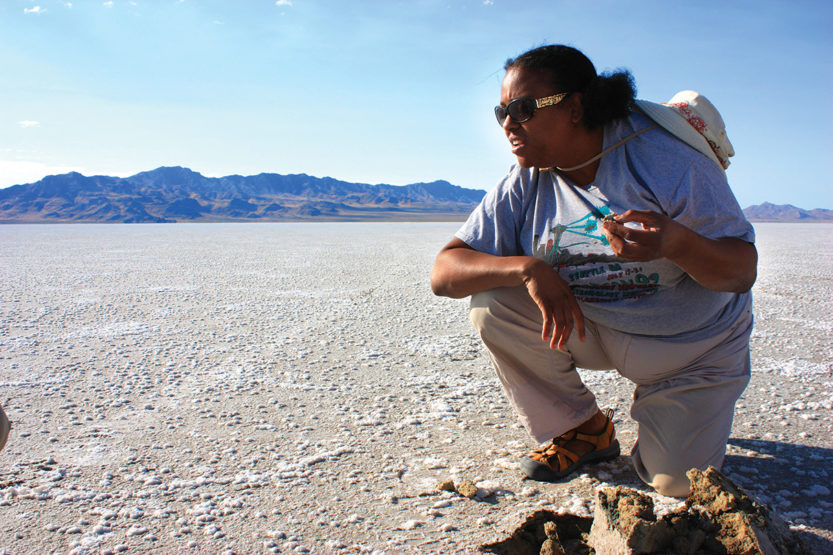Class Notes Profile: Mars Rover
 Astrobiologist Kennda Lynch catalogues characteristics of Utah’s Pilot Valley Basin, a region she describes as “a modern analog to what could have been an ancient environment on Mars.” (Image courtesy of NASA Astrobiology Institute)
Astrobiologist Kennda Lynch catalogues characteristics of Utah’s Pilot Valley Basin, a region she describes as “a modern analog to what could have been an ancient environment on Mars.” (Image courtesy of NASA Astrobiology Institute) Scientists researching extraterrestrial life can’t simply seek little green men. The first beings we discover will likely be single-celled organisms that might have died millions of years ago.
That’s why Kennda Lynch, ’00 ENG, ’00 LAS, a postdoctoral fellow in astrobiology at Georgia Tech, catalogues the characteristics of the Pilot Valley Basin in Utah. “I study this as a modern analog to what could have been an ancient environment on Mars,” she says, “so we can understand how to determine if this was an environment that hosted life at some point in Mars’ history.”
Even as a child growing up in Rockford, Ill., Lynch was captivated by space. She planned to attend MIT or Purdue, but she visited UI and fell in love with the campus, faculty and minority engineering program. While at Illinois, Lynch did internships at the Kennedy and Johnson Space Centers. There, she discovered astrobiology—the emerging study of life throughout the universe.
Inspired, she earned her master’s at the University of Colorado at Boulder and her Ph.D. at Colorado School of Mines, where she began her work in Utah.
She’s also passionate about sharing science. In 2018, Lynch appeared in Vox’s Netflix series Explained, where she discussed extraterrestrial life. (Her UI performance background helped—she and her friends ran a theater company out of Allen Hall.)
The public must understand and support space research if we’re ever going to find alien life and get humans to Mars. Both events, Lynch thinks, could happen in her lifetime.

